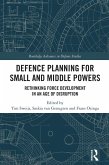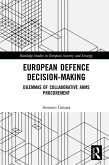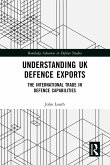Originating in the second half of the 19th century, defence offsets - additional economic, industrial and technological benefits to states for buying foreign weapons - have since been a key feature of the global arms trade and defence industry. And yet, offsets are an under-researched and under-theorised phenomenon. This book fills this gap in the literature by offering the first general theory of defence offsets, as well as the first systematic analysis of the offset phenomenon. By building on the insights of scholars of defence economics and drawing from the International Relations liberal paradigm, as well as reviving and adapting Robert Putnam's two-level game framework, the book proposes a liberal-rationalist theory of defence offsets. It then proves the worth of such a theory through Qualitative Comparative Analysis (QCA) of fifty-four fighter aircraft transfers from 1992 to 2021 inclusive, and three in-depth case studies addressing offsets negotiated and agreed to as part of fighter aircraft competitions in Brazil, India, and South Korea.
This book will be of interest to students of defence studies, defence economics, security studies and international relations.
Dieser Download kann aus rechtlichen Gründen nur mit Rechnungsadresse in A, B, BG, CY, CZ, D, DK, EW, E, FIN, F, GR, HR, H, IRL, I, LT, L, LR, M, NL, PL, P, R, S, SLO, SK ausgeliefert werden.
Ron Matthews, Chair, Defence and Security Capability at Rabdan Academy, Abu Dhabi, and Visiting Professor in Defence Economics at Cranfield University at the UK Defence Academy, UK
'Jonata Anicetti's defence offset study is very timely and reflects a need to better understand this persistent and demand driven practice in defence procurement. His deep analysis of the significant Korean, Indian and Brazilian defence acquisition programs, together with a survey of the breadth of offset transactions in aerospace, present for the first time a holistic analysis in his liberalist-rationalist approach. The importance of the work is as much in the powerful policy options it shows are clearly available to governments, as in the new directions in defence and industrial policy research opened by these thorough and well researched papers.'
Rodrik Cave, Publisher, Countertrade & Offset (CTO), London, UK









